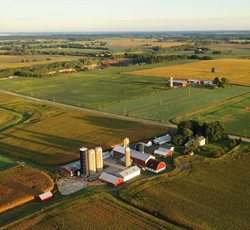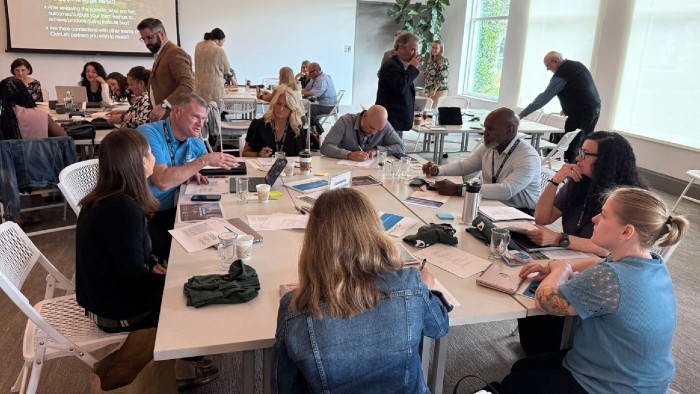
Learning Communities Bring Together Rural College Leaders
 With support from Ascendium, rural postsecondary education leaders have been brought together by National Center for Inquiry and Improvement (NCII) to explore innovative solutions regarding concerns that are unique to the rural context.
With support from Ascendium, rural postsecondary education leaders have been brought together by National Center for Inquiry and Improvement (NCII) to explore innovative solutions regarding concerns that are unique to the rural context.
The Rural Leader Learning Community, consisting of 26 rural community college leaders from 25 states, was established in early 2020 by NCII. This learning community was created to assist rural colleges in navigating pandemic challenges and to lift up opportunities for positive change at their institution. Meeting virtually during the COVID-19 health crisis, they focused on creating action-oriented resources for rural college leaders that explore how rural community colleges can best position themselves for long-term viability after the pandemic.
A series of six briefs, known as the Rural Community College Leader Series, were created from conversations that emerged from this group in their first year of work. The briefs are short and action-oriented, covering topics like maintaining financial stability, redesigning advising and support services and cultivating partnerships in the community.
Ideas from the Rural Leader Learning Community also laid the foundation for NCII’s most recent Rural Guided Pathways Project, a three-year project in which 16 rural community colleges will work together with partners in their regions to implement evidence-based, institution-wide reforms grounded in the guided pathways framework. Their efforts will have a special focus on how guided pathways can be implemented through a rural lens. According to research from the Community College Research Center, over 400 community colleges across the nation are engaged in national- or state-supported guided pathways reform efforts. Yet, reform efforts rarely focus on how rural institutions and rural communities can implement and reap the benefits of guided pathways. Many guided pathways reform efforts were specifically developed to meet the needs of large colleges in urban areas, reflecting design elements that don’t necessarily work well at smaller institutions in rural geographies.
One special requirement of this work was the identification by each participating college of six potential partners in postsecondary education and workforce training in their communities. Partners identified by the colleges ranged from chief executive officers of hospitals to elected officials to representatives from economic development organizations. The level of engagement between the institutions and their community partners is an important and unique aspect of this work.
“The success and sustainability of an institution is intricately tied to the opportunity in their communities,” said Chris Baldwin, an NCII senior fellow and co-leader of this learning community. “It’s still true in urban settings but is truer in rural communities. There are fewer entities to play these vital roles and come together in partnership to solve problems. It’s a central piece to this work.”
“We need to reach into the [K-12] schools, community organizations, adults displaced from work, and find clear and coherent pathways to jobs with a living wage in the community,” added Gretchen Schmidt, another NCII senior fellow and learning community co-leader. “Having a collective vision around economic mobility and opportunities with the community colleges as the convener — that’s really what we’re striving for here.”
Schmidt and Baldwin consider this a beta project to develop resources, materials, structures and a research agenda around the 16 participating rural institutions. They have intentions to scale this work so systems and structures developed can be used broadly for implementation beyond the colleges in this particular group.
Ascendium, through its Support Rural Postsecondary Education and Workforce Training focus area, invests in learning communities like these convened by NCII, which aim to build the capacity of rural postsecondary providers to support learners through their postsecondary experience and entry to the workforce.


